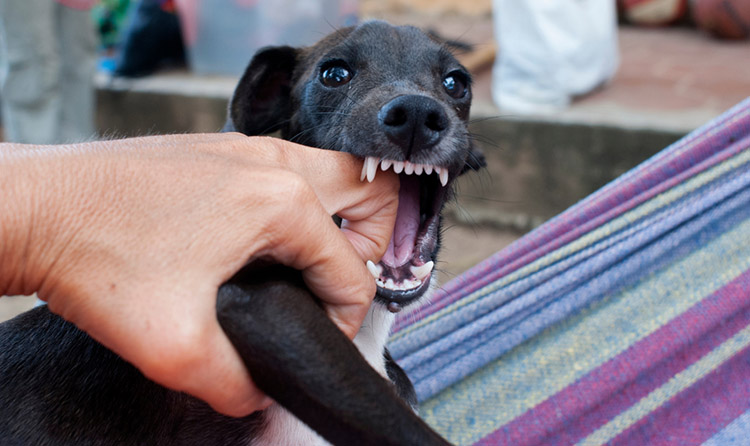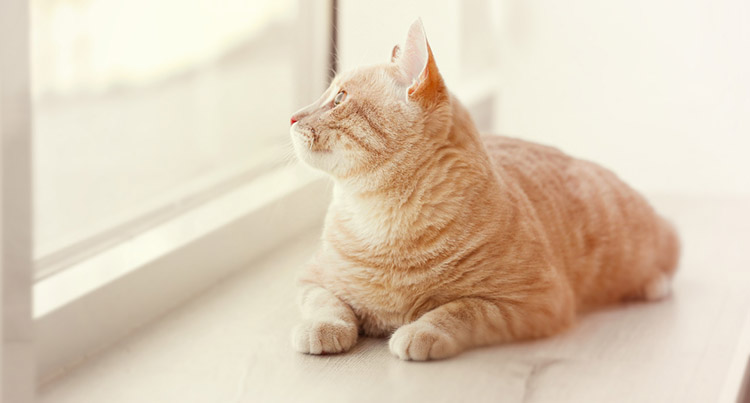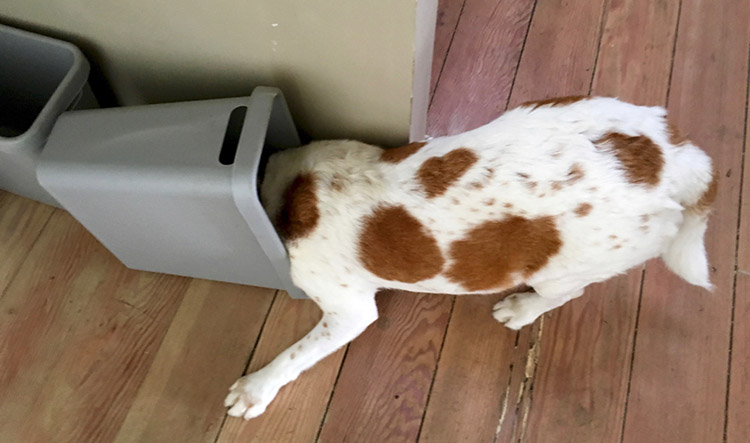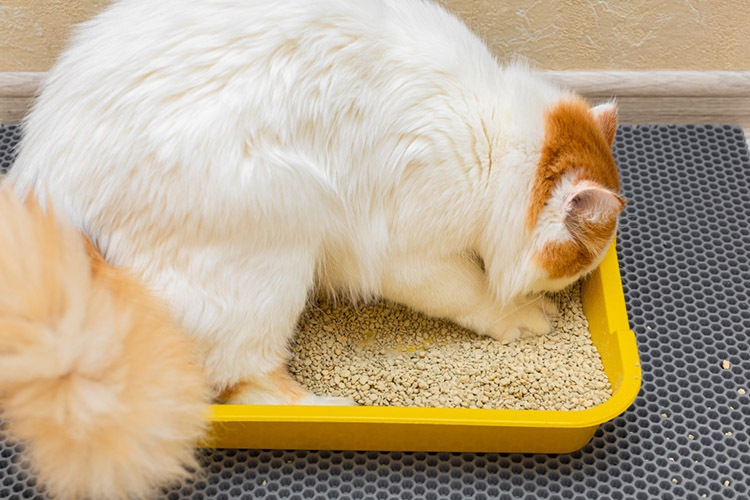Small changes in your pet’s behaviour and habits could be a sign of an ongoing illness or injury. Cats, in particular, are very good at hiding when they are in pain as they don’t like to appear vulnerable. Catching an injury or illness early can make a big difference to your pet’s future health.
Keeping a pet diary means you can track anything which is intermittent so you can find a pattern and recognise how long this issue has been going on. This is very useful if you need to speak to an expert, such as a vet or behaviourist.
If your pet is injured or has a sudden change in behaviour, then take them to a vet immediately.
Here’s some things to look out for, for both cats and dogs.
Changes when being touched
- Tension in their face when being fussed or groomed if they are normally comfortable with it.
- Snappy when touched or played with when they didn’t use to be.
- Tender when touched – their skin/fur may ripple when you touch it, much like a shiver down the spine for us.
- Overgrooming on one spot – you’ll see this especially with bare patches on their joints and paws.

Changes in activity
- Not keen to play, go for a walk or go outside.
- Staying in bed for longer, not getting up even when a favourite person visits.
- Not using their higher-up snoozing spots or going up onto the sofa.
- Not sitting or lying down as quickly or easily as they normally do.

Changes in eating and drinking
- Eating more or eating less than usual. This could include scavenging for food, getting into bins or getting snappy over keeping treats when they didn’t use to.
- Drinking more or less than usual. Are you filling up their water bowl more than you used to?

Changes in toileting
- Straining to wee or poop (taking longer over it than normal) or going to the toilet without much warning. For cats, look for them missing their litter tray or toileting in the house when they usually go outside.
- Changes in their poop or wee. Is it softer, harder or does it have blood in it?
TOP TIP: For cats, it is good to have a litter tray indoors even if they usually go outside. It gives them a choice, you can monitor their poop for changes, and if they need it then it saves your carpet!

Taking action
If you don’t already have a pet diary, monitor for a few days – unless they have blood in their poop/wee/vomit in which case take them to a vet straight away. Let them take it easy whilst you monitor them, don’t push them to go outside if they don’t want to.
Stress and pain can have very similar symptoms, so consider these questions to help your vet work out what may be the cause:
• Has there been a change in their food?
• Have you changed their litter or where the litter tray is placed?
• Have they had injuries before in the place they are tender in?
• Has there been a change in the house recently – have you redecorated, have people moved in or moved out?
• Has their routine changed? Perhaps a change in your job or routine has also changed their routine.
• Are there new cats or dogs in the neighbourhood?
Don’t panic, and don’t Dr Google it! Especially don’t medicate them yourself – human medications can be poisonous to pets, even if they are for the same issues.
Now, book an appointment with your vet and tell them about the changes you have been noticing. Even if it seems to be stress-related, a good behaviourist will ask you to see a vet before their consultation to rule out anything medical, so it is never a wasted trip.
» DOWNLOAD this as a printable page